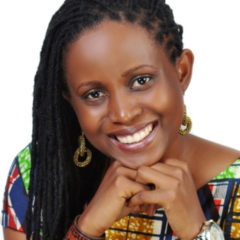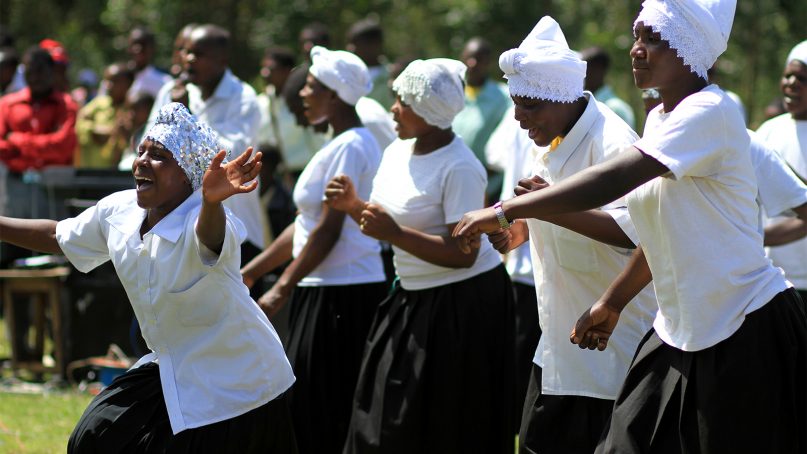(RNS) — On International Women’s Day, which we celebrated this weekend (March 8), it is important to honor women who have made headlines and changed the world. But we should also recognize the work of local heroes the wider world may have never heard of.
My mother is one of these women. She’ll never be famous, but she has been changing the lives of her family and community in Uganda through concrete, daily activism for decades. Her work proves that #EachforEqual, the theme of this year’s International Women’s Day, is not just an idea but could lift millions of people out of poverty.
Forced to fend for herself and her five children after fleeing an abusive, unreliable husband, my mother turned to her local church, which introduced her to what’s known in her local west Ugandan community as a savings circle. In these groups, the local church helps rural women commit to pooling their savings — rarely more than a few cents a week, a dollar at most. Eventually, some of the contributors take out loans from this pool to start businesses, pay for medical needs, purchase farming supplies or invest in a child’s education. The goal is to build financial and relational trust that can lift the entire community to a sustainable level of prosperity.
My mother’s leadership transformed our community. Without her, other women wouldn’t have been able to support their families or give their kids an education. Without her, the community would not have benefited from the businesses started by the members of the savings group. Without her, I wouldn’t be where I am today: In a Ph.D. program and working at a nonprofit advocating for women like her.
Because of her extraordinary act of courage, I, my four siblings, the more than 20 orphans my mom raised and educated and the other youth who currently benefit from the nonprofit she founded all stand on her strong shoulders. We are surgeons, lawyers, engineers, accountants, business owners — and prospective PhD candidates — whose work touches lives in Uganda and around the world.
She didn’t do it on her own. Without the community she found in her local church and savings circle, her story and mine would likely have turned out very different.
She’s a shining example of what research has found to be true: Investing in women multiplies impact. When a country sends 10% more of its girls to school, its GDP increases by 3%. With each year of secondary school, a girl raises her earning power by 18%. When women and men own the same amount of land, crop yields increase by more than 10%.
This is because women are the cornerstone of the family and, it follows, the cornerstone of their communities. To influence a woman is to influence her children, and to influence her children is to influence the next generation.
I’ve seen this happen not only with my mom but also with the women I currently support through World Relief in regions throughout sub-Saharan Africa, as well as in Haiti and Cambodia. Of the participants in our Savings for Life financial education program, 72% are women. Many of them are in savings groups led by local churches, as my mom was, and their discipline and commitment are rippling out from them and their families to their communities.
These women deserve to be acknowledged as anti-poverty warriors as well. In many ways, they’re far more equipped to solve the problems facing their communities than many Western leaders are. Many Western leaders have the social and financial capital to have a large-scale impact, but these local women leaders have the concrete, experiential knowledge to understand the challenges of their local community that allows them to make a long-term, sustainable difference.
If my mother’s skills and strategies can launch me all the way from rural Uganda to a graduate program at Vanderbilt University, they can certainly transform the lives and families of women like her throughout the region. Leadership from the top is important, but we must also empower the women at the bottom to carve out their own destiny.
The church was a great support for my mother when she was feeling the weight of being poor and homeless, with five children depending on her for survival. Her experience has shaped both of our faith journeys, instilling a belief in the need for community to rally around each other and the most vulnerable, to make sure no one is left behind in poverty and destitution. I am humbled and blessed to now get the opportunity to engage in the very work of which I am a product.

Rhona Murungi. Courtesy photo
As we continue to empower women across the globe, let’s find leaders who often go unrecognized and support organizations like World Relief that empower them. If my story proves anything, it’s that taking risks on invisible women can change everything.
(Rhona Murungi is a senior program officer with World Relief. The views expressed in this commentary do not necessarily reflect those of Religion News Service.)





